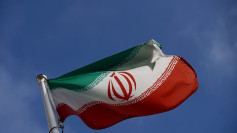Syrian President Bashar al-Assad fled the capital, Damascus, on Sunday, as opposition forces swept through the city in a stunning offensive that marks the end of his regime's 50-year rule. The rapid collapse of the Assad government comes after weeks of rebel advances that overran major cities and culminated in the capture of the Syrian capital without significant resistance.
Assad's departure was confirmed by multiple sources, including the Syrian Observatory for Human Rights. Rami Abdurrahman, the head of the observatory, told The Associated Press that Assad boarded a flight from Damascus to an undisclosed location. Syrian state television also acknowledged the president's departure but declined to provide details.
The fall of Damascus has sparked celebrations across the city, with thousands gathering in the streets to chant "Freedom" and wave opposition flags. Videos shared on opposition-linked media platforms showed residents cheering and soldiers abandoning their posts. In central Damascus, jubilant crowds shouted anti-Assad slogans while celebratory gunfire echoed through the air.
The offensive, led by the Islamist rebel group Hayat Tahrir al-Sham (HTS), began on November 27 and rapidly overwhelmed Syrian government forces. Within days, the rebels captured Aleppo, Hama, and Homs, leaving Damascus isolated. On Saturday, the rebels took control of the notorious Saydnaya military prison, freeing hundreds of prisoners, further eroding the regime's grip on power.
Prime Minister Mohammad Ghazi al-Jalali, who remains in Damascus, called for a peaceful transition of power. In a televised statement, he urged Syrians to avoid damaging state institutions and declared his willingness to hand over control to a transitional government. "I am in my house, and I have not left, and this is because of my belonging to this country," he said.
The collapse of the Assad regime has drawn mixed reactions from international players. Russia's Foreign Ministry issued a statement acknowledging Assad's departure and announced that Syrian state institutions would now transition under the prime minister's supervision. Meanwhile, the White House confirmed that President Joe Biden is monitoring the situation closely. President-elect Donald Trump commented on Truth Social, "Assad is gone. His protector, Russia, was not interested in defending him anymore."
Damascus International Airport was evacuated, and all flights were suspended as rebel forces took control of the facility. Reports also indicated looting at the Ministry of Defense headquarters and other abandoned government buildings. Witnesses described widespread panic among residents, with thousands rushing to stock up on essential supplies or attempting to flee to neighboring Lebanon.
The Assad family's rule began in 1970 when Hafez al-Assad seized power in a coup. His son, Bashar, took over in 2000 but became an international pariah following his brutal crackdown on pro-democracy protests in 2011, which sparked Syria's civil war. The conflict has claimed over 500,000 lives and displaced millions, with Assad's use of chemical weapons drawing global condemnation.
Hayat Tahrir al-Sham, once affiliated with al-Qaeda, has emerged as the dominant force among Syria's opposition groups. HTS leader Abu Mohammed al-Golani has attempted to rebrand the organization, distancing it from its hardline roots and promising a more pluralistic governance model. On Sunday, Golani urged rebel fighters to avoid damaging public institutions, emphasizing the need for an orderly transition.
The United Nations called for urgent talks in Geneva to facilitate a peaceful political transition. U.N. Special Envoy Geir Pedersen described the situation as fluid and warned of the potential for further chaos. Foreign ministers from key regional players, including Saudi Arabia, Turkey, and Iran, gathered in Doha to discuss the implications of Assad's fall.






